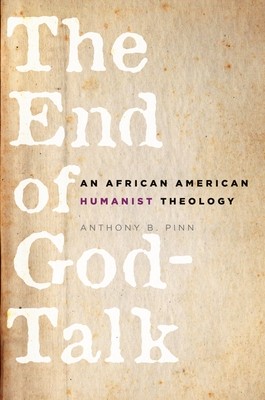
- We will send in 10–14 business days.
- Author: Anthony B Pinn
- Publisher: Oxford University Press, USA
- ISBN-10: 0195340833
- ISBN-13: 9780195340839
- Format: 15.6 x 23.4 x 1.3 cm, minkšti viršeliai
- Language: English
- SAVE -10% with code: EXTRA
Reviews
Description
In this groundbreaking study, Anthony B. Pinn challenges the long held assumption that African American theology is solely theist, arguing that this assumption has stunted African American theological discourse and excluded a rapidly growing segment of the African American population - non-theists. Rejecting the assumption of theism as the African American orientation, Pinn poses a crucial question: What is a non-theistic theology?
The End of God-Talk outlines the first systematic African American non-theistic theology. Pinn offers a new center for theological inquiry, grounded in a more scientific notion of the human than the imago Dei ideas that dominates African American theistic theologies. He proposes a turn to Henry David Thoreau, Frederick Douglass, Harriet Tubman, and Alice Walker in order to effect a sense of ethical conduct consistent with African American non-theistic humanism. The End of God-Talk ends with an exploration of the religious significance of ordinary spaces and activities as settings for humanist theological engagement. Through a turn to embodied human life as the proper arena and content of theologizing, Pinn opens up a new theological path with important implications for ongoing work in African American religious studies.EXTRA 10 % discount with code: EXTRA
The promotion ends in 22d.14:23:37
The discount code is valid when purchasing from 10 €. Discounts do not stack.
- Author: Anthony B Pinn
- Publisher: Oxford University Press, USA
- ISBN-10: 0195340833
- ISBN-13: 9780195340839
- Format: 15.6 x 23.4 x 1.3 cm, minkšti viršeliai
- Language: English English
In this groundbreaking study, Anthony B. Pinn challenges the long held assumption that African American theology is solely theist, arguing that this assumption has stunted African American theological discourse and excluded a rapidly growing segment of the African American population - non-theists. Rejecting the assumption of theism as the African American orientation, Pinn poses a crucial question: What is a non-theistic theology?
The End of God-Talk outlines the first systematic African American non-theistic theology. Pinn offers a new center for theological inquiry, grounded in a more scientific notion of the human than the imago Dei ideas that dominates African American theistic theologies. He proposes a turn to Henry David Thoreau, Frederick Douglass, Harriet Tubman, and Alice Walker in order to effect a sense of ethical conduct consistent with African American non-theistic humanism. The End of God-Talk ends with an exploration of the religious significance of ordinary spaces and activities as settings for humanist theological engagement. Through a turn to embodied human life as the proper arena and content of theologizing, Pinn opens up a new theological path with important implications for ongoing work in African American religious studies.

Reviews